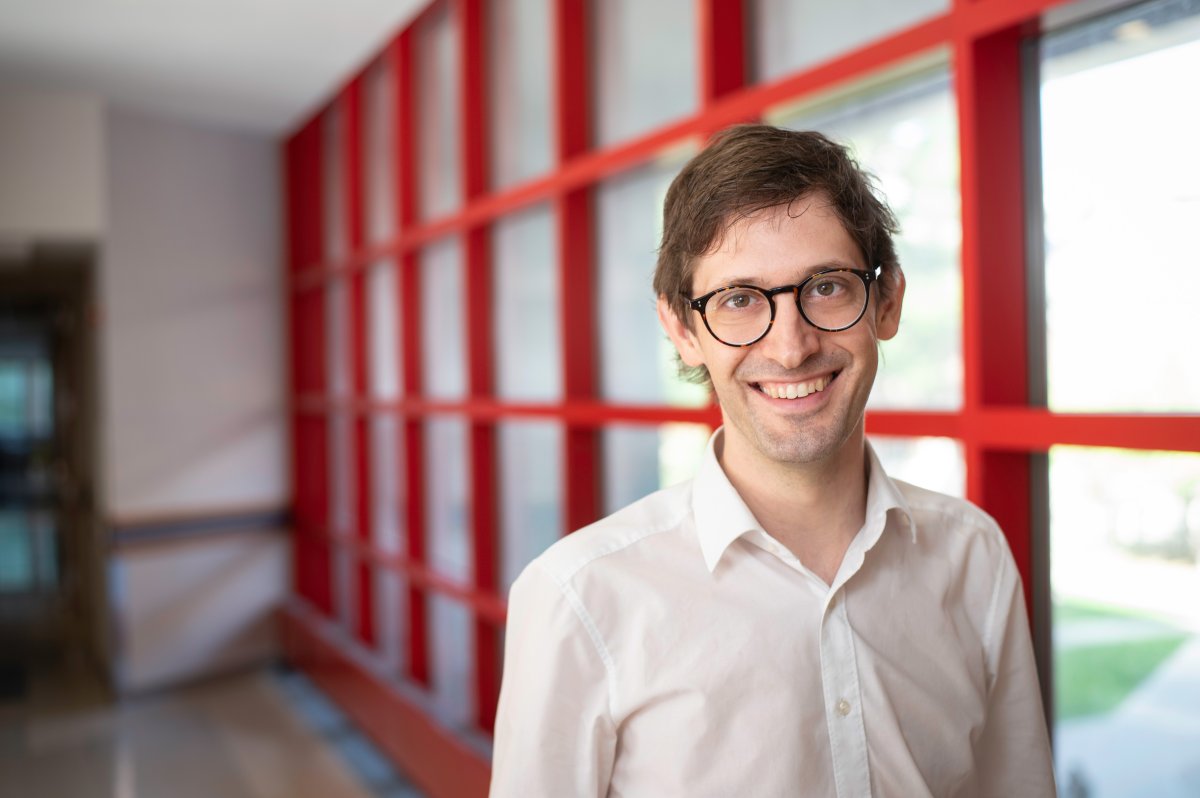Meet the Faculty - Sebastiaan Joosten

Tell us about your journey to the University of Minnesota.
I grew up in the Netherlands and got my bachelors in physics and masters in mathematics from the University of Twente, Enschede. I was briefly an assistant professor there as well. I then went to the Open University of the Netherlands with a seat at the Radboud University in the Digital Security group to start my Ph.D. program, but I ended up finishing my program at the Technical University of Eindhoven. My advisor had moved there and I followed him to stay on the same research path. My Ph.D. is in computer science.
Eventually, I did a post-doctoral program in Innsbruck, Austria, studying the automatic generation of programs. I met my wife there. She was learning ancient Akkadian and ancient Samarian. She was almost done with her Ph.D. and after that she got a lectureship at Dartmouth and we decided to move there together. She then got a tenure-track position at the University of Minnesota and we decided to relocate for that opportunity. It was very fortunate that she got that job since there are 200 or more applicants in that field each year and only 4-5 jobs. I am grateful there was also a place for me at the University to pursue my line of work.
We would love to hear more about your research!
Since I’m not on the research track, I have the opportunity to pursue research on my own time and focus on my interests. I am taking the time to investigate the automatic generation of information systems based on relation algebra. Currently, I am working on handling migration between systems with different semantics and ontologies while figuring out how to set that up in a way that takes the users into account. I should be able to prove that from mathematical equations - I am mixing the benefit to the user with the rigor of mathematics.
What do you hope to accomplish with this work? What is the real-world impact for the average person?
I am sure you have experienced changing systems or using a system that you would rather not be using. Sometimes you can’t migrate to the new system because it’s going to be too expensive to take the data from one system to another. The storage is fundamentally different. What I am proposing is to generate a third system that allows you to keep using both systems simultaneously. After a while, you could stop using the old system and rely on the new system, taking the migration system out of the equation.
I actually work with my dad on this. He started this system called Ampersand and we will be creating this migration system for them as a proof of concept.
What courses are you teaching this spring? What can students expect to get out of that class?
I am currently teaching discrete mathematics and will teach that in the spring as well. I am also teaching 2041, advanced programming principles, and students will be learning about OCaml. It is not about OCaml itself, but rather about learning the fundamental principles of programming in a functional language without variable updates. You have to program in a very different way. I care deeply about these subjects and I enjoy seeing students get excited about it as well. I hope to get some students inspired and continue this line of work.
What do you do outside of the classroom for fun?
I have a daughter that is 7 months old and I enjoy spending time with her and my family. I play the piano and my daughter enjoys hearing me play. I also enjoy doing my research and working on my project.
Do you have a favorite spot in the city?
My home is my favorite place and I like spending time with my family. I also like the sculpture garden at the Walker Art Center.